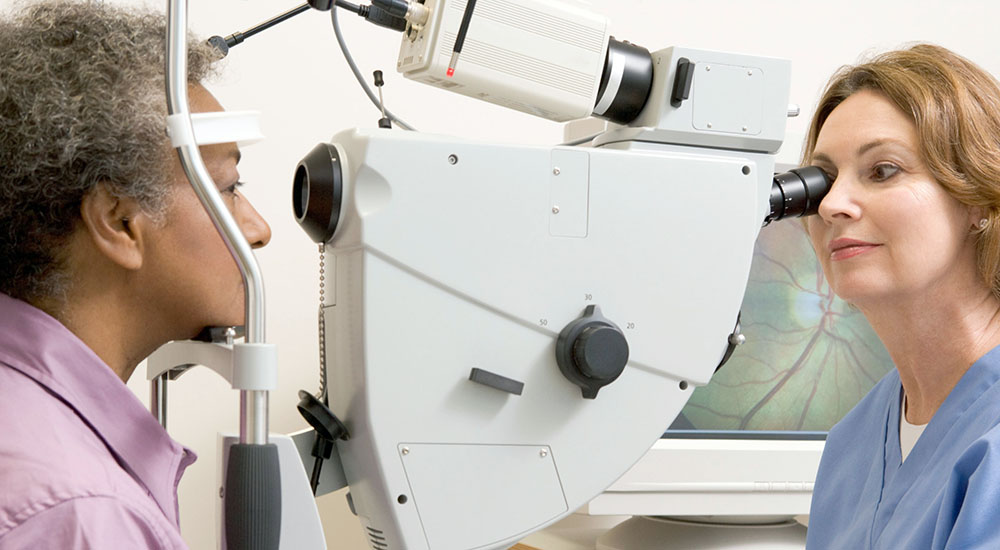Regular eye exams are an important part of maintaining overall health. Eye diseases that lead to vision loss often don’t show symptoms in the early stages. They can only be found by an eye care specialist. Unfortunately, many Veterans lack access to this type of specialty care in their communities.
Optometrist Dr. Timothy Elcyzyn and Ophthalmologist Dr. April Maa are working to change that through TeleEye programs at VA.
“The older we get, the higher risk we have of developing specific eye diseases,” said Elcyzyn, provider for the VISN 4 Tele-Eye Clinical Resource Hub. “The Veteran population is getting older, so there will be a greater prevalence of eye disease and use of eye clinics. Telehealth really allows us to expand our access to be closer to Veterans so they save their time and travel costs.”
Benefits of TeleEye
TeleEye enables patients to receive eye care remotely at their primary care doctor’s office. During the telehealth visit, technicians collect information using digital retinal cameras, tonometers for checking eye pressure, and other ocular testing devices.
The technician sends the clinical information to a remote eye care specialist. The specialist then analyzes and provides a written report of the results and recommendations for care. If an eye disease or other concern is detected, the eye care specialist may call the patient or initiate a video visit to discuss the findings in greater detail.
TeleEye supplements in-person care, enabling VA to offer eye care in more locations than ever. Veterans can receive regular eye screenings and other types of eye exams while visiting a VA primary care clinic. Increasing access to these services helps reduce barriers for Veterans in rural areas. Those Veterans might otherwise have to commute hours to a specialty eye clinic.
Helping improve access to care
“We feel strongly that telehealth is a tool in the toolbox that complements in-person care,” said Maa, Tele-Specialty care director for the VISN 7 Clinical Resource Hub. “We can help improve access to care while reducing disparities Veterans may face.”
Elcyzyn and Maa are both national TeleEye leads for the Office of Connected Care. They help produce content and training that support the field in using telehealth. They vet equipment for telehealth operations and act as eye health subject matter experts for VA staff and leadership. Also, they co-chair the Eye Telehealth Council, a group of four ophthalmologists and four optometrists in leadership positions who represent eye care at VA.
“Our essential role is to make sure we determine the priorities, the safety and future focus of eye telehealth within VA,” said Elcyzyn.
More on this story in Part Two next week.
To learn more about VA TeleEye, visit the VA Telehealth website.
Topics in this story
More Stories
Study underscores important role COVID vaccination can have in protecting Veterans from infection and reducing long-term health consequences
Columbia VA’s robotic surgery teams completed their 800th robotic surgery and are on schedule to hit 1,000 by the end of the year.
In a decentralized clinical trial, Veterans can participate from their own homes or local VA instead of having to travel to a research site.







I hope I can get some medical assitance in the future